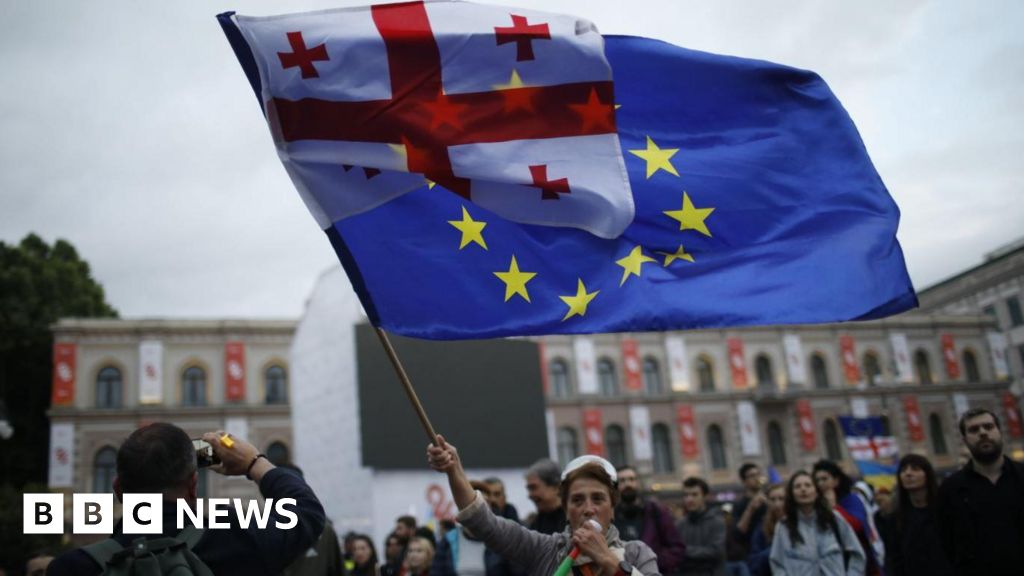- Author, Kathryn Armstrong
- Role, BBC News
Georgia’s path to EU membership is being blocked by the passing of a controversial foreign influence law, European leaders have said at a summit in Brussels.
The passing of the law represented “backsliding” on steps laid out to enable the country to join the bloc.
“The European Council calls on Georgia’s authorities to clarify their intentions by reversing the current course of action which jeopardises Georgia’s EU path,” the leaders said in a document released on Thursday.
They added that they maintained their “steadfast solidarity with the Georgian people” and expressed a “readiness to continue supporting Georgians on their path towards a European future”.
“The European Council calls on Georgia’s authorities to clarify their intentions by reversing the current course of action which jeopardises Georgia’s EU path, de facto leading to a halt of the accession process,” the statement of their conclusions from the summit reads.
Georgia was granted EU candidate country status in December after being given a list of steps it needed to take to proceed, including justice reform.
However, the bloc has been critical about the passing of the new foreign influence law, which is due to come into effect next month.
Under it, media and non-governmental organisations that receive over 20% of their funding from abroad will have to register as “organisations acting in the interest of a foreign power”, submit themselves to stringent audits, or face punitive fines.
The Georgian government argues the rules will ensure transparency of money flowing to support NGOs and protect Georgia from foreign interference.
Its opponents have dubbed it “Russian law” because of its similarities with an existing law in Russia and believe the real reason for the legislation is to stifle dissent ahead of October’s parliamentary elections.
The US has previously said the law threatens free speech.
Thousands of Georgians have protested against it and there have been reports of NGO workers, activists and opposition politicians receiving threats or being physically assaulted at rallies.
EU leaders on Thursday also called for an end to “the increasing acts of intimidation, threats and physical assaults against civil society representatives, political leaders, civil activists and journalists”.
They said they would continue to monitor the situation in Georgia closely and called on the government to ensure the upcoming elections were “free and fair”.

